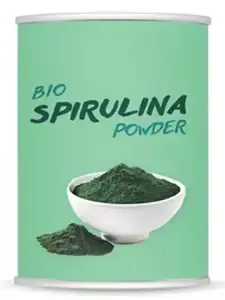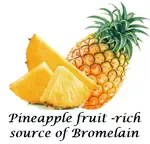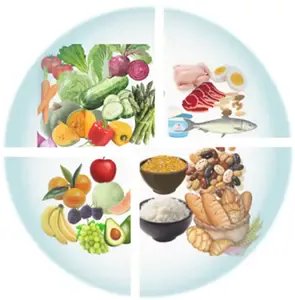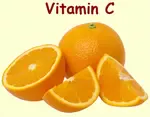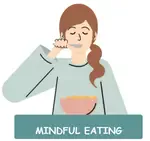Welcome to Nutrition Facts Blog
Nutrients are essential components found in food that are vital for maintaining optimal metabolic functions in the body. Understanding proper nutrition helps us determine our daily needs for calories, minerals, vitamins, and phytonutrients.
For example, being overweight or obese increases the risk of developing various diseases, including coronary heart disease (CHD), stroke, diabetes, and cancer. Adopting healthy eating habits can significantly reduce the likelihood of these conditions or delay their onset.
The primary goal of this blog is to educate readers about the nutritional value of the foods they eat and provide guidance for making healthier dietary choices. The blog provides detailed information about a wide range of food options that can be found in your local area.
The Nutrition Blog also keeps you informed about any updates or modifications to the nutrition-and-you.com website. Please consider using the "share" buttons to help spread the message of good health to your friends!
Continue reading on blog topics:
Hyacinth bean (Lablab bean) Nutrition facts and Health benefits
The hyacinth bean is a tropical twining pole bean plant belonging to the legume family. It is cultivated for both its green or purple-colored immature pods and its delicious dry beans. It contains- Calories-337 calories per 100 g, protein-22.33 g (40% of DA), folates-91%, pyridoxine-36%, thiamin-65%, copper-93%, Iron-69%, Manganese-62% and zinc-33% of daily values.
Continue reading "Hyacinth bean (Lablab bean) Nutrition facts and Health benefits"
Cannellini beans Nutrition facts and Health benefits
Cannellini beans impart a fine, fluffy texture and a pleasant beany taste to the recipes. Calories-333/ per 100 g, protein-23.3 g (41% of DA), folates-97%, Iron-130%, and Manganese-78% of daily recommended values.
Continue reading "Cannellini beans Nutrition facts and Health benefits"
Winged bean Nutrition facts and Health benefits
The Winged bean is one of its kind tropical legume wherein almost all parts of the plant, including young pods, mature seeds, tender leaves and shoots, flowers, and tubers are used as a vegetable in Asian cuisine. The tender beans are an excellent source of protein (6.95 g/100g) and Vitamin-C (18.3 mg/100g).
Continue reading "Winged bean Nutrition facts and Health benefits"
Acid Reflux Diet Guide: What to Eat and What to Skip for GERD
Control acid reflux symptoms with a GERD-friendly diet. Learn what to eat, what to skip, and how healthy eating habits ease heartburn...Read on.
Continue reading "Acid Reflux Diet Guide: What to Eat and What to Skip for GERD"
9 Amazing Delicata squash Nutrition facts and Health benefits
Delicata squash is a low-calorie (34 cal/3.5 oz), nutritious winter-squash variety of Cucurbita family vegetables. Its orange-yellow flesh is a rich source of vitamin-A-1370 IU (45% DV), Pyridoxine-0.156 mg (12% DV), Vitamin C-12.3 mg (20% DV), and Potassium-350 mg (7% DV).
Continue reading "9 Amazing Delicata squash Nutrition facts and Health benefits"
Spirulina: Superfood for Nutrition, Weight Loss, and Health Benefits
Discover the powerful health benefits of Spirulina, a superfood rich in protein (100g holds 57.5 g), vitamins, antioxidants, and PUFAs. Ideal for nutrition, weight loss, skincare, and fighting malnutrition.
Continue reading "Spirulina: Superfood for Nutrition, Weight Loss, and Health Benefits"
How Can I Get Rid of Pain Naturally?
Certain anti-inflammatory foods that contain proteolytic enzymes like bromelain can naturally help relieve pain. Healthy lifestyle habits such as regular exercise and stress management also support pain reduction...Read on.
Eating Healthy Campaign: Principles for a Balanced Diet
Discover key principles of healthy eating—moderation, variety, and balance—for a sustainable diet and long-term wellness. A balanced diet provides the right mix of carbs, proteins, fats, vitamins, and minerals...Read on.
Continue reading "Eating Healthy Campaign: Principles for a Balanced Diet"
Vitamin C Benefits, Sources, and Daily Requirements
Discover the benefits of Vitamin C, its daily requirements, top food sources, and how it boosts immunity, skin health, and overall wellness...Read on.
Continue reading "Vitamin C Benefits, Sources, and Daily Requirements"
What is Mindful Eating?
Discover the power of mindful eating—an approach that focuses on savoring food, preventing overeating, improving digestion, and promoting overall health. Learn the difference between diets and mindful eating, the wisdom of Hara Hachi Bu, and simple steps to practice mindfulness at every meal...Read on.
≻≻-Back to Home page from Nutrition facts blog page.



